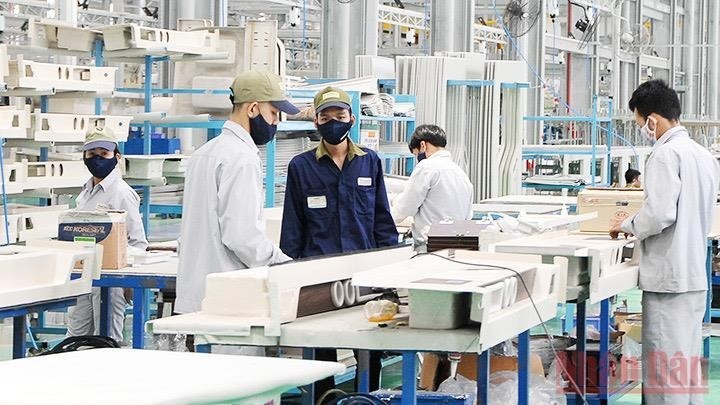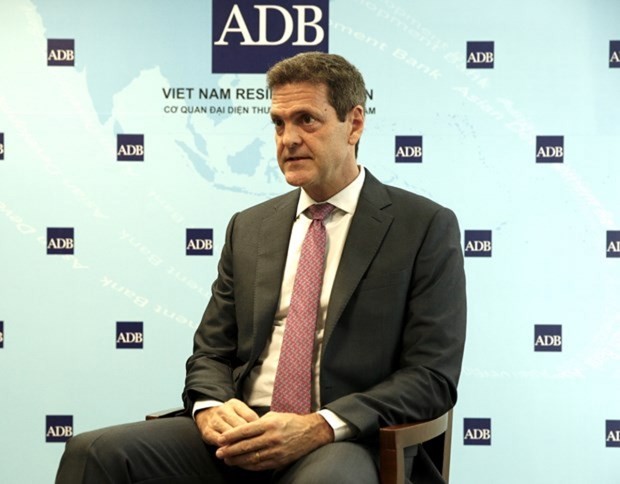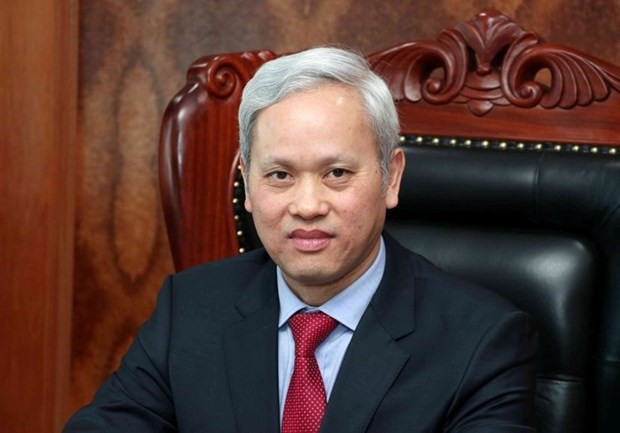(VOVWORLD) - Despite the world’s economic uncertainties, Vietnam's GDP has grown relatively well with major balances guaranteed and business climate index (BCI) increasing 12 percentage points, the highest level since the fourth outbreak of the pandemic. Vietnam's GDP this year is predicted to grow from 5.3% to 6.5%, lower than before the pandemic, but it shows businesses’ confidence in the country’s economic future.
 International organisations are upbeat about Vietnam's growth in the post-pandemic period. (Photo: Hai Anh) International organisations are upbeat about Vietnam's growth in the post-pandemic period. (Photo: Hai Anh) |
98% of the products made by the Dap Cau Garment Company in Bac Ninh province have been exported.
During the fourth outbreak of the pandemic, Dap Cau was the first company of the Vietnam National Textile and Garment Group to have workers out with COVID-19.
Losses during that period were estimated at nearly 26 million USD, says Nguyen Duc Thang, the company’s CEO.
“During that difficult time, our workers and the company benefitted from insurance policies and government Resolution 68, which supported employees and employers affected by the COVID-19. We’ve now restored full production and trading capacity and our workers have returned to work. The current problem is that raw materials are being delivered behind schedule but our customers still want their delivery on time,” said Thang.
The Government is being called upon to find short-, medium-, and long-term solutions to restore commodity trading with foreign partners.
 Andrew Jeffries, ADB Country Director in Vietnam (Photo: VGP) Andrew Jeffries, ADB Country Director in Vietnam (Photo: VGP) |
Andrew Jeffries, Country Director in Vietnam of the Asian Development Bank (ADB), says post-pandemic recovery is the short-term goal and the Vietnamese government needs to accelerate disbursement for public investment projects and encourage investment by the private sector to help businesses recover.
ADB and other international organizations think inflation in Vietnam this year will likely double last year’s inflation due to the inflationary pressure of the global food crisis. The Vietnamese government has already identified the risk and vowed to keep inflation below 4%.
 Economist Nguyen Bich Lam (Photo: VNA) Economist Nguyen Bich Lam (Photo: VNA) |
Economist Nguyen Bich Lam, former Director of the General Statistics Office, says that target is feasible, but it will require careful coordination of the government's socio-economic recovery and development program.
According to Lam, the government must remove obstacles in administrative mechanisms, policies, and procedures, repeal unreasonable regulations, diversify supply sources, simplify the trade process, secure raw materials, increase the independence and autonomy of the economy, and harmonize fiscal and monetary policies.
He called on the business community to boost production and trade, maintain the distribution of goods, and balance the interests of consumers and companies such as oil consuming companies.
Echoing Lam’s opinion, Phan Duc Hieu, a member of the National Assembly’s Economic Committee, said, “Domestic and foreign experts have varying forecasts but they’re all reasonably optimistic.”
“We have many advantages, but there are unknown risks. And there are the risks already identified, such as raw material prices, inflation, and international conflicts. Growth depends on what we do from now on,” said Hieu.
Francois Painchaud, Chief Representative of the International Monetary Fund in Vietnam, underscored the need to efficiently implement the socio-economic recovery and development program, realize support programs for people and businesses, and enforce policies transparently.
Vietnam needs policies that promote the recovery and maintenance of financial markets and policies that support vulnerable people and people in difficulty, he said.